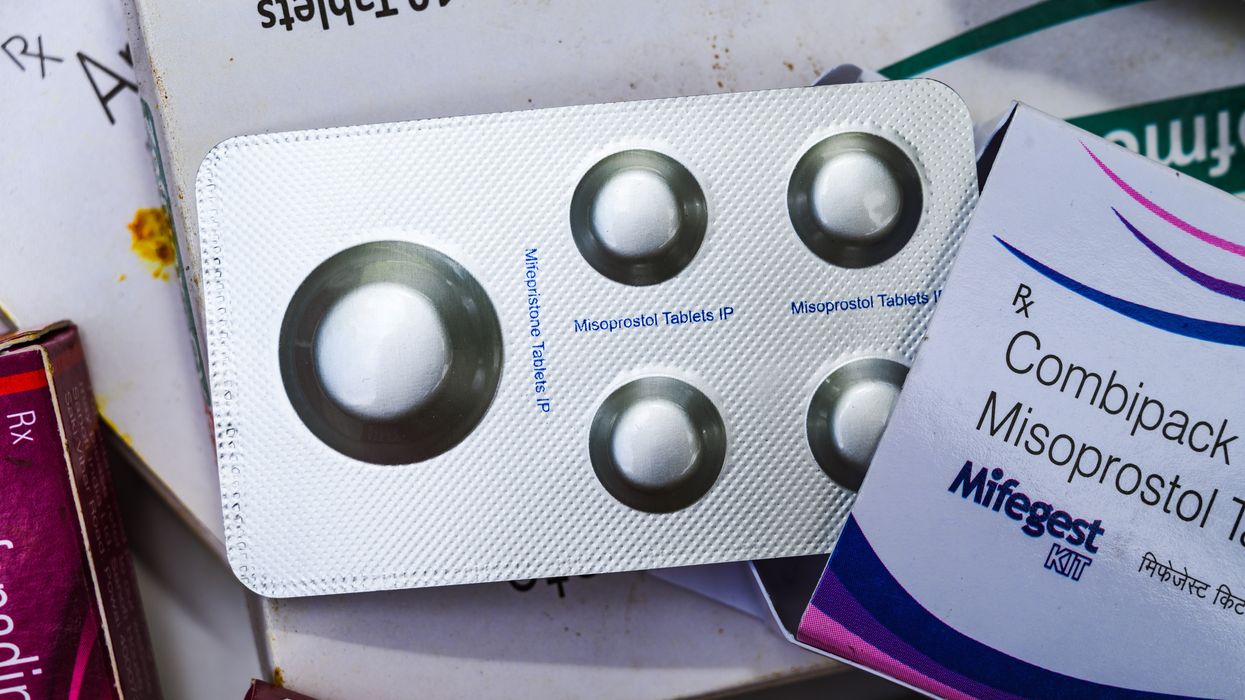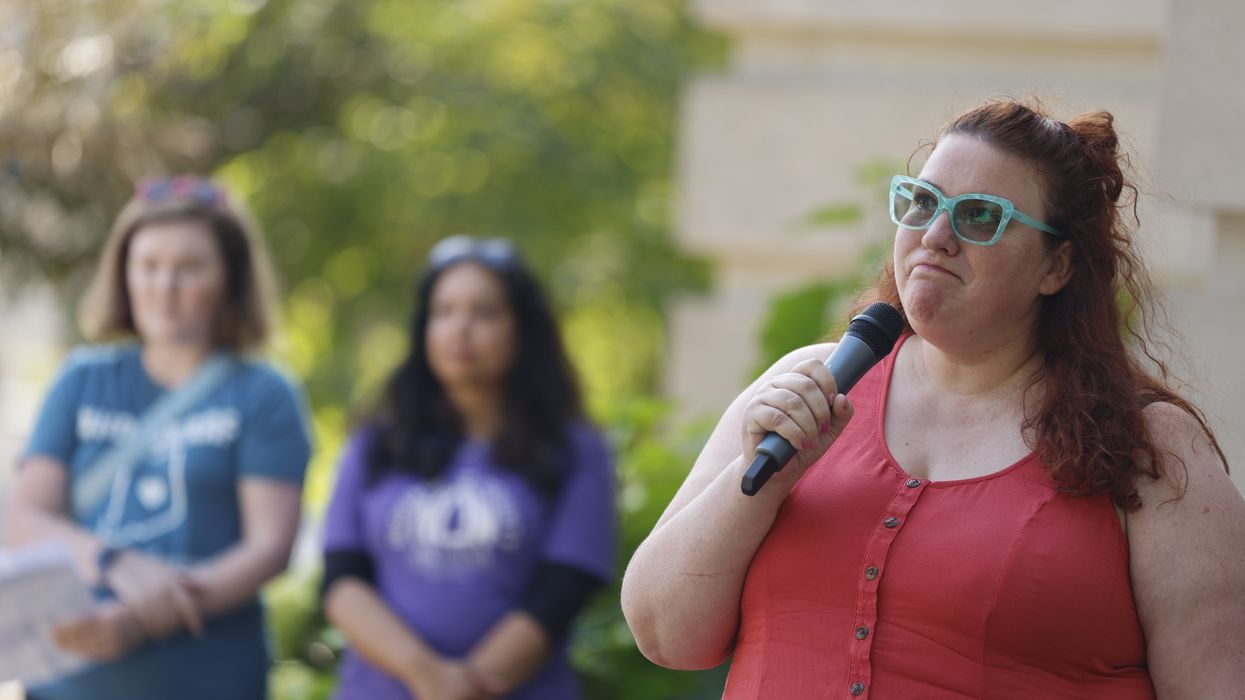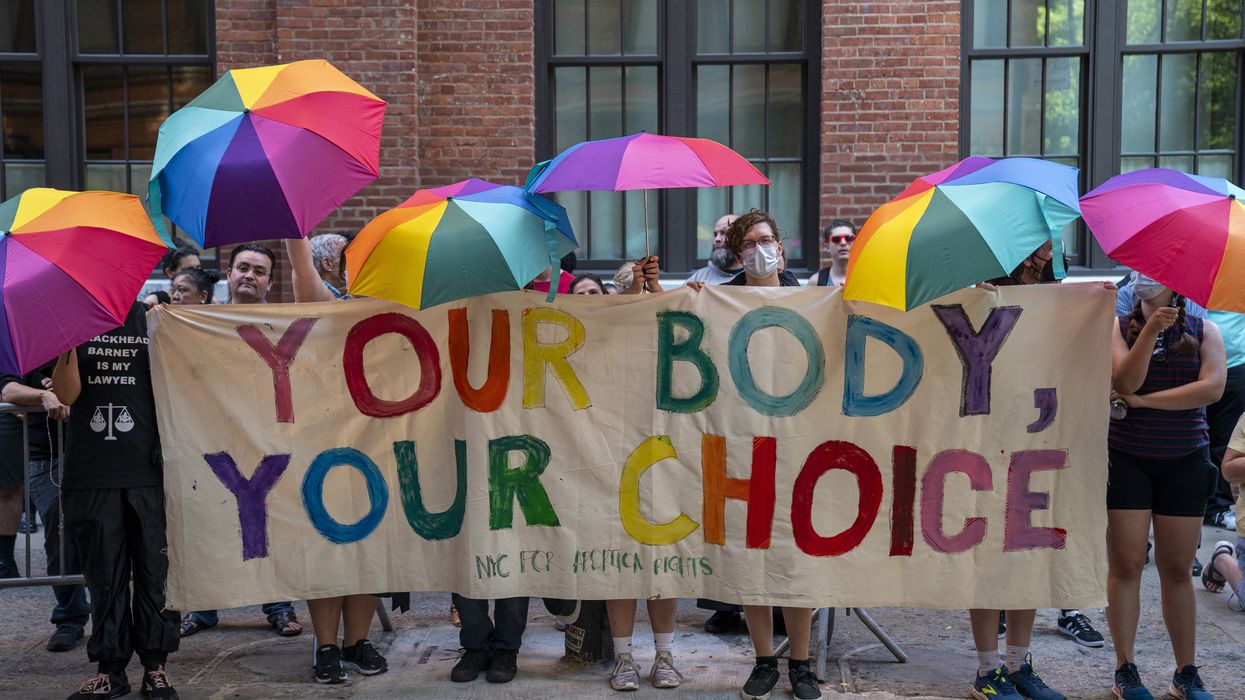Alarm as 'Legal Terrorist' Helps Texan Sue Dr. Over Girlfriend's Abortion Pills
The high-profile lawyer behind the case "wants to shut down doctors in shield law states," said one expert, and "he wants a federal court to weigh in on the Comstock Act."
As polling reaffirms U.S. public support for abortion rights, a new case in Texas is generating alarm and outrage, as it involves a federal "zombie law" that the forced birth movement aims to use to block people across the country from accessing abortion pills.
Jonathan Mitchell is serving as lead counsel in the proposed class action lawsuit, filed Sunday in the Southern District of Texas. Described as an "anti-abortion legal terrorist" by Susan Rinkunas in Jezebel, Mitchell is Texas' former solicitor general and the chief architect of a state law that entices anti-choice vigilantes with $10,000 bounties to enforce a six-week abortion ban.
"He's represented at least three other men who've sued over women's abortions—including Marcus Silva, who sued his ex-wife's friends for helping her get abortion pills. That case was eventually dropped, but not before it came out that Silva tried to use the lawsuit to blackmail his ex into having sex with him," Jessica Valenti noted in her Abortion, Everyday newsletter. "Since then, Mitchell and other anti-abortion activists have been cozying up to men's rights groups, 'abortion recovery' ministries, and crisis pregnancy centers—on the lookout for more angry men eager to sue their partners or exes for ending a pregnancy."
In the new wrongful death case in Texas, Mitchell represents Jerry Rodriguez, who is suing Rémy Coeytaux, a California doctor accused of mailing to Galveston County medication that his girlfriend used to end her pregnancy last September. The complaint claims the girlfriend's estranged husband and mother "pressured her to kill the baby with the drugs obtained from Coeytaux."
The complaint also claims the girlfriend ended a second pregnancy with "pills that were illegally obtained" in January—and she is now two months into a third pregnancy, and Rodriguez believes she may seek another medication abortion. He asked for $75,000 in damages and "an injunction to stop Coeytaux from distributing abortion-inducing drugs in violation of state or federal law."
The new "wrongful death" abortion pill lawsuit out of Texas is a BFD for several reasons, but one twist is that the doctor being targeted is the brother of lifelong reproductive health advocate Francine Coeytaux of @plancpills.bsky.social Collab by Nina Martin & me on what the case is all about:
[image or embed]
— Madison Pauly (@msjpauly.bsky.social) July 23, 2025 at 5:25 PM
Among the legislation cited in the filing is the Comstock Act, or 18 U.S. Code § 1461, a dormant 1873 law that criminalized the shipping of "obscene" materials, including abortifacients. While some anti-choice advocates aim to outlaw abortion nationwide with legislation in Congress, Mitchell has said that "we don't need a federal ban when we have Comstock on the books."
Since the U.S. Supreme Court's right-wing majority reversed Roe v. Wade with Dobbs v. Jackson Women's Health Organization in 2022, Republican lawmakers have ramped up their efforts to restrict abortion rights within their states—with deadly consequences. Residents of those parts of the country have increasingly turned to telehealth. States with pro-choice policymakers have enacted "shield laws" to protect abortion providers and patients who are traveling or receiving care online.
"These anti-abortion folks are really upset that all these pills are being sent to their states, and they're doing whatever they can to try to stop it," Jill Wieber Lens, a University of Iowa College of Law professor and reproductive rights expert, told Jezebel.
Lens also framed the Texas case as a fear tactic. "I think so much of this is about the chilling effect, as opposed to actually winning this lawsuit," she said. "This might scare other doctors in shield states from wanting to continue what they're doing."
According to Mother Jones, "The case is the first known test of whether abortion opponents can use federal court lawsuits to circumvent state shield laws aimed at protecting providers—a major escalation of attacks on abortion-friendly states."
Mary Ziegler, an abortion historian and law professor at the University of California, Davis, told the outlet that "the whole game for Jonathan Mitchell is to get into federal court... both because he wants to shut down doctors in shield law states, like everyone in the anti-abortion movement, and because he wants a federal court to weigh in on the Comstock Act."
Ziegler added on social media that the suit is also intended to "force a response" from the U.S. Supreme Court and President Donald Trump, who has so far resisted pressure from forced birth activists to use the Comstock Act to ban abortion nationwide. Further, she said, "it reinforces arguments for fetal personhood (note that is a class action on behalf of all 'fathers of unborn children')."
Three years after the fall of Roe v. Wade, most Americans still support legal abortion.-64% say abortion should be legal in all or most cases.-80%+ support it in cases of rape, incest, or health risks.-Even after Dobbs, public opinion hasn’t budged; the people are not with the ban.
[image or embed]
— Anna DNP, FNP, BC@ AccessToCareAdvocate (@anna1900.bsky.social) July 24, 2025 at 7:33 AM
The case comes as Thursday polling from the Associated Press-NORC Center for Public Affairs Research shows that 64% of U.S. adults across the political spectrum say that abortion should be legal in all or most cases.
While 52% of all respondents agreed abortion should be allowed if the patient does not want to be pregnant "for any reason," large majorities believe it should be allowed if the pregnant person's health is seriously endangered (89%), the pregnancy is a result of rape or incest (86%), and an abnormality would prevent the fetus from surviving outside of the womb (85%).
Additionally, according to the poll, a majority of Americans support protecting abortion access for people who endure miscarriages or other pregnancy-related emergencies (69%), protecting a patient's right to obtain care in another state (56%), and protecting doctors from fines or prison time (55%).


